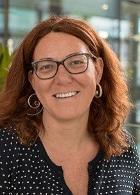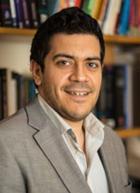
Life for ECRs in the Modern University! University of York: Early Career Researcher (ECR) Development Workshop
Event details
Workshop Abstract
This two-hour ECR workshop features four interactive segments focusing on the politics of academia, publishing, research grant funding, and research impact. Experienced researchers Professor Ross Gordon (University of Technology Sydney, Australia), Dr Nadia Zainuddin (University of Wollongong, Australia), Professor Anne-marie Greene (Chair in Work and Diversity, Knowledge Exchange/Impact lead, School for Business and Society), Professor Claudia Gabionetta (Chair in Chair in Accounting and Management, School for Business and Society) and Dr Antonios Roumpakis (Senior Lecturer in Comparative Social Policy, School for Business and Society) will share their tips, advice, and guidance on how ECRs can navigate life in the modern university – with dialogic discussions and opportunities for Q&A throughout.
During our first segment of the workshop, we will consider some of the issues regarding the politics of academia and how ECRs can navigate the game and rules of the neoliberal university. This includes issues around class, race, status and hierarchy, networking, realistic expectations and managing these for ECRs, dealing with critical feedback and rejection, managing conflict, probation and promotion, time management, work-life balance, and staying true to your values as a person and as a researcher.
In the next segment we will focus on the importance and relevance of academic publishing and key issues, challenges, and barriers and opportunities that ECRs should be aware of. We will consider issues around what publication outlets are looking for, where to publish, the relevance and importance of journal rankings and impact factors, opportunities created through journal special issues and guest editing journals, knowing about editors, associate editors, and reviewers, and how to manage the submission and review process.
Next, we will share advice, top tips, and common guidelines for securing research grant funding. This will include considerations around the reasons for doing research, funding sources, working with collaborators, topics for research, investment of time and other resources, persistence and resilience, research track record, sourcing advice and mentorship, and pitching your grant idea well.
The final segment of the workshop will cover research impact and the various ways that research knowledge, findings, and insight can make meaningful impacts on society. Activities such as submissions to parliamentary inquiries policy briefings/expert evidence, workshops, media, Conversation articles, and community dissemination events will be discussed as useful outlets for the dissemination of knowledge other than in books and journal articles and lead to impact.
Workshop Speaker Bios
Professor Ross Gordon, University of Technology Sydney, Australia

Ross Gordon is a Professor of Behaviour and Social Change at UTS Business School, University of Technology Sydney. He researches social issues and behaviour and social change, through a critical, reflexive, and multi-perspective lens. Ross is also Director of a new UTS research centre: Change for Good, working in the same area. Ross currently serves on the WHO Technical Advisory Group on Behavioural Insights and Sciences for Health. He works on various behaviour and social change issues including gambling, non-communicable diseases, Covid-19, energy hardship and energy efficiency, climate action and environmental sustainability, alcohol, tobacco control, mental health, workplace bullying, and the neoliberalism of education. Ross has been a principal or named investigator on projects attracting over $8.7m in research funds. He has published over 120 academic journals, book chapters and conference papers and a leading book: Strategic Social Marketing: For Behaviour and Social Change published by SAGE. Ross also enjoys playing and watching football and is a techno DJ.
Nadia Zainuddin, University of Wollongong, Australia

Dr Nadia Zainuddin is a behaviour and social change researcher. Her research aims to understand the lived experiences of people, to inform programmes, interventions, and policy to improve well-being. Conceptually, she is a specialist in value theory, having pioneered work developing and applying the frameworks of value creation and destruction across a range of social marketing and consumption contexts. These include the cost-of-living crisis, cancer screening, wellness, disability, and transportation. Her projects focus on people who are more likely to experience marginalisation and vulnerability, such as women, older people, people with disabilities, culturally and linguistically diverse (CALD) groups, and people in insecure work. She is a mixed methodologist, trained in both qualitative and quantitative research techniques. Nadia has experience working on funded research projects in partnership with a range of government and industry collaborators, including the Australian Research Council, Australian Marketing Institute, The Scottish Universities Insight Institute, Queensland Health, New South Wales Health, and the Australian Red Cross Blood Service. Nadia also has a strong track record of academic governance, providing significant and extensive service contributions to the wider academic and research community. She is the current President of the Australian Association of Social Marketing, the peak body representing social marketers in industry, academia, and government in Australia. She has chaired the International Social Marketing Conference (the leading Australasian social marketing conference) and the World Social Marketing Conference (the leading international social marketing conference), guest edited special issues for the Journal of Social Marketing, sits on the Editorial Advisory Board of the Journal of Services Marketing and on the review panel of the Princess Alexandra Hospital Research Support Scheme, and is an ARC Detailed Assessor for Marketing.
Professor Claudia Gabbioneta, Chair in Accounting and Management, School for Business and Society, University of York

Claudia is Chair in Accounting and Management. She joined York in 2021 from the University of Newcastle, having previously worked at IULM University and the University of Genoa in Italy. She is Senior Editor of Organisation Studies, Consulting Editor of the Journal of Professions and Organisation and sits in the Editorial Boards of the Journal of Management Studies and the Journal of Strategic Contracting and Negotiations. Claudia’s research primarily examines professions and professional occupations and addresses a wide range of issues within this context, including professional identity, professional reputation, and professional misconduct. She is also interested in organizational wrongdoing and corporate scandals, and how professionals and professional organizations are implicated in them. Her research has been published in leading journals, including Accounting, Organisation and Society, Human Relations, Work, Employment & Society, the Long Range Planning, the Journal of Management Inquiry, and the Journal of Professions and Organisation. Claudia has co-edited three Special Issues, one in Human Relations (“Inserting professionals and professional organisations in studies of wrongdoing: The nature, antecedents, and consequences of professional misconduct”), one in the Journal of Professions and Organisation (“Management, professional occupations and knowledge as a contested terrain”), and one in the Research in the Sociology of Organisations (“Organisational wrongdoing, misconduct, and corruption: Their nature, antecedents, and consequences”). Claudia is member of the Academy of Management, the European Group for Organisational Studies, and the European Accounting Association (Interdisciplinary/Critical Group).
For more information, please visit Claudia’s page on the School for Business and Society website.
Professor Anne-marie Greene, Chair in Work and Diversity, Knowledge Exchange/Impact lead, School for Business and Society, University of York

Anne-marie Greene is Professor of Work and Diversity at the School for Business and Society. She is Chair of the Standing Conference on Organisational Symbolism (SCOS) and Co-Convenor of the Gender and Employment Study Group of the International Labour and Employment Relations Association (ILERA). She received her PhD from the University of Wolverhampton and was an ESRC Studentship recipient for an MA in Industrial Relations from the University of Warwick, following a BA (Hons) degree in Modern History from the University of Oxford (Brasenose College). Anne-marie has held previous academic posts at the University of Leicester School of Business (where she was Associate Dean for Research), De Montfort University, University of Warwick, University of Aston and University of North London. She has been a Professorial Fellow at the Susana Wesley Foundation, University of Roehampton. She has held previous editorial positions for Gender, Work and Organisation, Work, Employment and Society; Equality, Diversity and Inclusion and the Industrial Relations Journal.
For more information, please visit Anne-marie’s page on the School for Business and Society website.
Dr Antonios Roumpakis, Senior Lecturer in Comparative Social Policy, Head of Social Policy, School for Business and Society, University of York

Before joining the University of York in 2012, Antonios taught at the Department of Social & Policy Sciences (University of Bath) and worked as a postdoctoral researcher at the Nordic Centre of Excellence in Welfare Research (NORDwel) at the University of Helsinki. His research agenda, that is mainly focusing on the comparative political economy of welfare, transcends policy areas and brings together work from housing, pensions, family policy, labour relations, regulation and governance of welfare, including informal work, care and private indebtedness. His research has been published in journals such as Critical Social Policy, International Labour Review, Journal of Comparative and International Social Policy, Social Policy and Administration and Social Policy and Society.
For more information, please visit Antonios’ page on the School for Business and Society website.